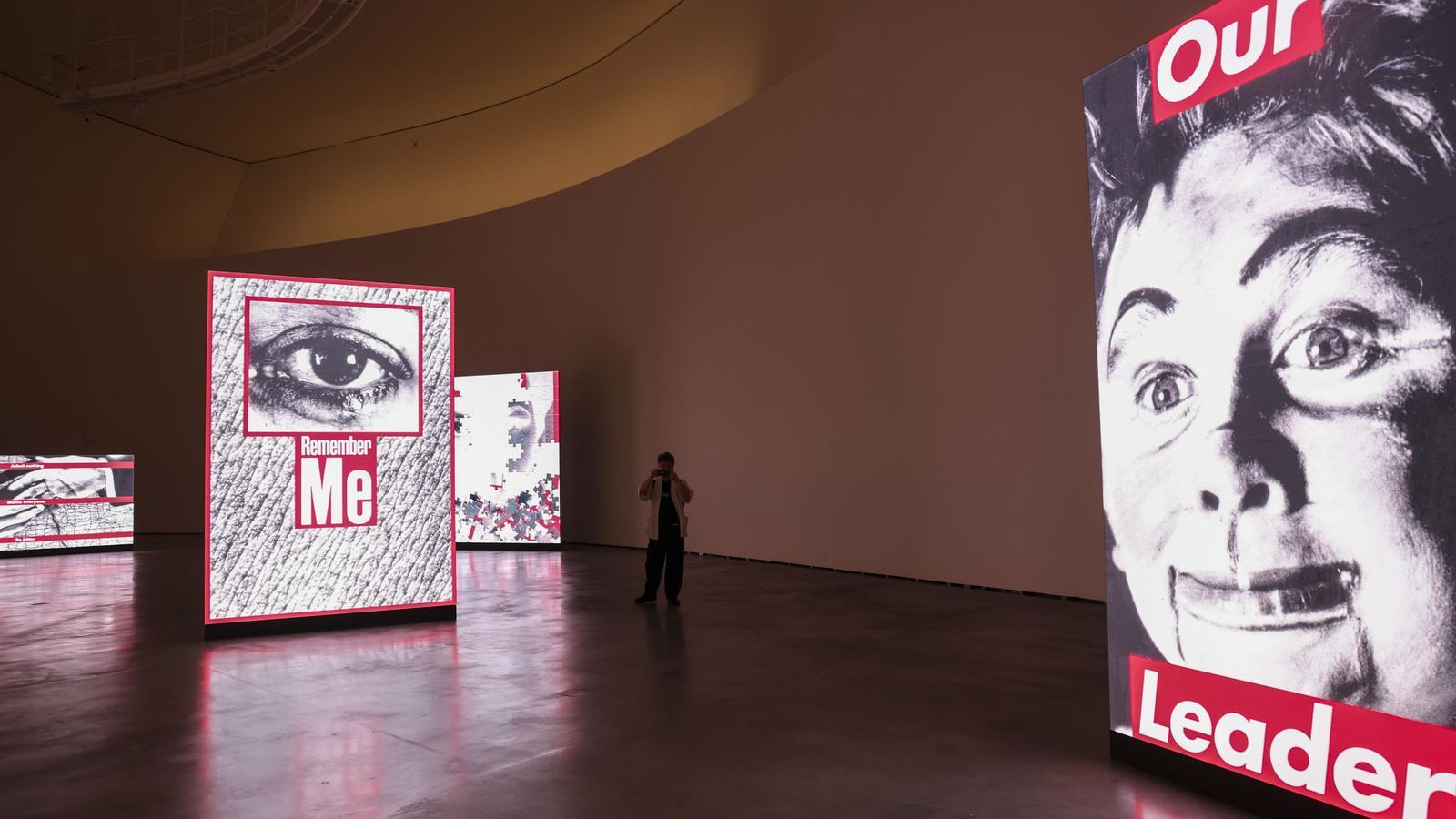"I buy, therefore I am": Barbara Kruger's art takes over the Guggenheim in Bilbao
The Basque museum hosts the first retrospective exhibition of the American artist in Spain.


Bilbao"I shop, therefore I am." "Your body is a battlefield." "We don't need another hero." "Your comfort is my silence." The subversive slogans with which American artist Barbara Kruger (Newark, New Jersey, 1945) has become famous over nearly fifty years remain fully relevant. The Guggenheim Museum in Bilbao is the first in Spain to dedicate a major retrospective exhibition to her: Barbara Kruger. Another day. Another night. The artist and the curator, Lekha Hileman Waitoller, have conceived it as a monumental immersive experience, with rooms lined from top to bottom with text.
Hileman says they didn't plan the exhibition with specific current events in mind, but the text of one of the works includes a fragment from George Orwell's novel. 1984, which brings to mind the war in Ukraine and the massacre in Gaza: "If you want to get an idea of what the future will be like, imagine a boot crushing a human face... incessantly." Another piece, the cover of a copy of the magazine New York 2018, seems made for these days before the next meeting between Trump and Putin: "Prump, Tutin." This is not the first time Kruger has attacked Trump on the cover of this magazine: two years earlier he had stamped the word loser over a full-page portrait.
The roots of Barbara Kruger's visual language lie in her past as a graphic designer and picture editor in the late 1960s for magazines such as Mademoiselle and House & Garden. Kruger then learned to capture the public's attention, and when she entered the art world, she worked with Futura Bold and Helvetica Ultra Compressed typefaces because they are easily legible and have a great impact. "In Kruger's work, we find an infinite constellation of fonts and references, primarily political discourses, advertising slogans, and even religious beliefs or doctrines," says museum director Miren Arzalluz. "And we can quickly see the extent to which she subverts the intention of advertising and media language to reveal the mechanisms of persuasion, consumption, and control that somehow permeate our daily lives," she adds.
The ability to create universal works
The exhibition, sponsored by the West, includes early works by the artist, some of them revisited for the occasion, and more recent audiovisual installations that highlight Kruger's artistic relevance. At the beginning of the exhibition, one sees how countless social media users have appropriated features of Kruger's work, such as the white text on a red background and the black and white photographs. "There are two things that stand out about her work and distinguish her from many other contemporary artists: the ability to adapt her work to our current times, and the relevance of what is seen in the exhibition," says Hileman. "Kruger learned to master the ability to find the right words to directly address the reader," the curator adds. "Furthermore, her critiques of power structures and abuses, consumerism, and gender inequality, make sense regardless of where she exhibits them, whether in Los Angeles, Shanghai, London, or Bilbao."
The exhibition, which can be visited until November 9, includes a work created specifically for this exhibition that is displayed on the floor of the corridor that connects the different rooms: Untitled (Road) It includes texts in Spanish and Basque by Kruger and by authors such as Franz Kafka, Carlos Fuentes, Edgar Allan Poe and James Baldwin.
